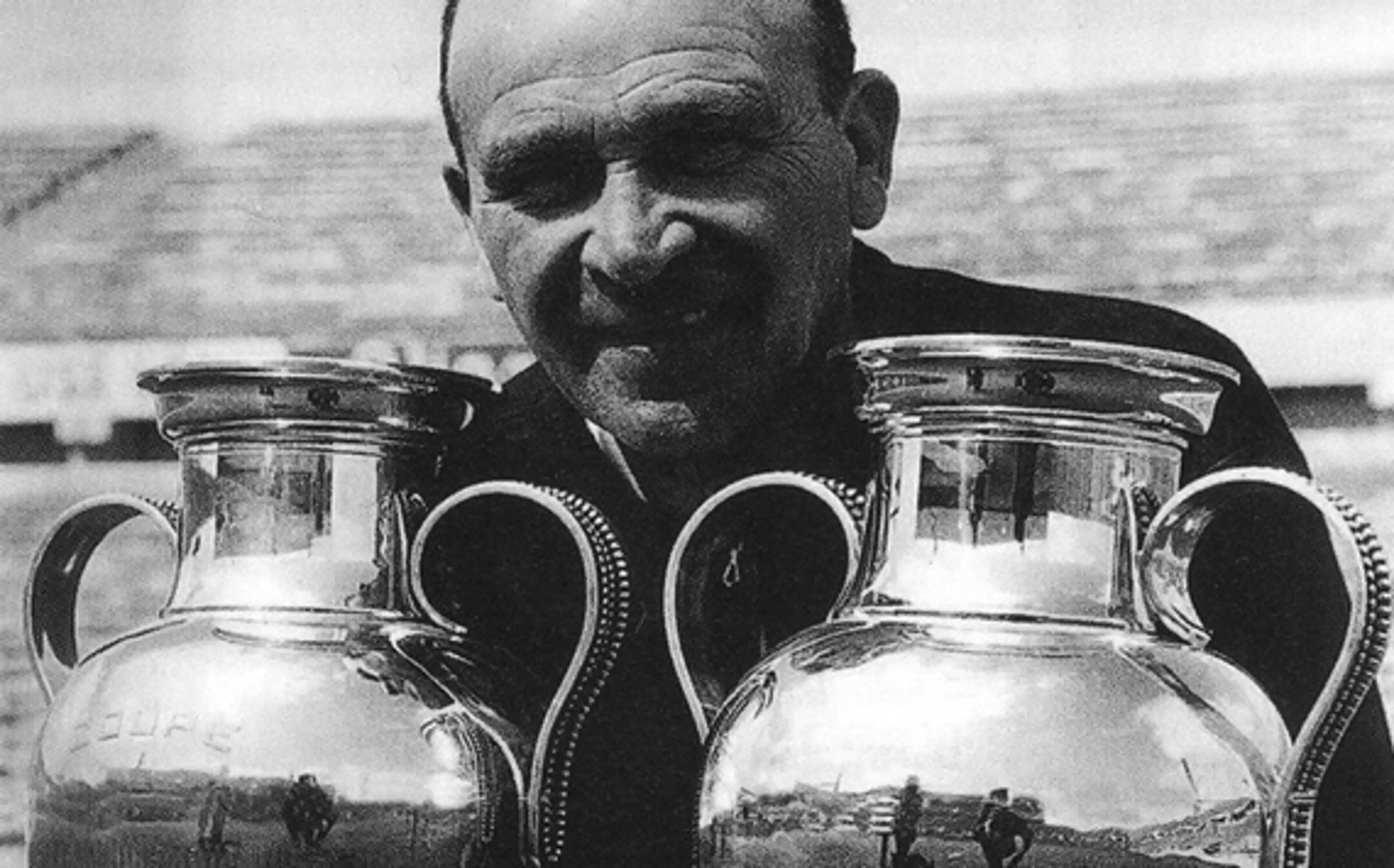The curse of the Jewish coach who wanted his salary in vegetables: Who is Bela Guttmann?
While everything was going well at Benfica under Guttmann's management, which became Europe's biggest by overthrowing Barcelona in his first year and Real Madrid with Eusebio in his second year... Guttmann asks for a raise in his salary but cannot get it. This is how the truly remarkable story begins.

Guttmann was the child of a Jewish family, born in Budapest in the early 1900s. After his not-so-glorious football career, he rolled up his sleeves to become a coach and coached the Jewish team Hakoah Wien, the Dutch team Twente, and the Hungarian team Ujpest, which were founded in Austria, until 1939, when World War II started. He became league and cup champion just before the war with Ujpest. Guttmann is also known as the person who discovered Ferenc Puskas, who is considered one of the best football players in the history of football, and the Hungarian Sandor Kocsis.
Béla Guttmann (27 January 1899 – 28 August 1981) was a Hungarian footballer and coach. He was born in Budapest, Austria-Hungary, and was Jewish. He was deported by the Nazis to a Nazi slave labor camp where he was tortured; he survived the Holocaust.
In 1944, he narrowly escaped being sent to Auschwitz, Nazi Germany's largest concentration and extermination camp and managed to escape with another Hungarian coach, Ernö Egri Erbstein. Guttmann lost his father and sister in this concentration camp.
He asked for his salary in vegetables
After the end of the war, Guttmann immediately set to work and became the head coach of Romania's Jewish-based team, Maccabi Bucharest. The Hungarian coach asked the club to pay his salary in vegetables during these years of post-war famine and poverty. The foundations of the legend that will last until today, including the adventures of Italy and Argentina, began to be laid in those days. He took charge of Porto in 1958 and managed to become champion in his first season. Guttmann, who stayed in Portugal, signed for Porto's biggest rival, Benfica. Who could have said that the Lisbon team, which had no success in the international arena other than the Latin Cup championship organized by four countries (Portugal, Spain, France, Italy), would be the greatest in Europe?
The man discovered in the barbershop: Eusebio
The discovery of Eusebio, one of the biggest names of Portuguese and world football, in a barbershop is one of the most enjoyable details of this success story. Guttman, who went to a barber in Lisbon to get shaved just a few months before his first European cup victory, encountered his old friend Jose Carlos Bauer, the coach of Sao Paulo team Ferroviaria. Bauer tells Guttmann that they will soon go on a tour in Africa. Guttmann asks him to tell him about a talented actor if he sees him. A month after this incident, Guttmann meets Bauer again at the same barbershop. What a coincidence... He immediately asks Bauer if he has seen any talented players. Bauer tells him about a young boy from Mozambique. He says that it is expensive for them and that is why they cannot transfer it. Gutmann asks the name of the child, and Bauer says 'Eusebio'... This is how the Eusebio legend begins in Benfica.
''It won't be European Champion for 100 years''
Everything seemed to be going well at Benfica under Guttmann's management, which became Europe's biggest by overthrowing Barcelona in its first year and Real Madrid with Eusebio in its second year. After these successes, Guttmann would rightfully ask for a raise in his salary, but Benfica management would not approve of this. This was how the truly remarkable story would begin. After his request was rejected, Guttmann would leave the club and was said to have said, "Benfica will not be European champions for a hundred years."
Just a year later, these words or the curse fell on a whole community, and Benfica could not smile in the 8 finals they played in Europe since then. Here are all the finals that Benfica has played in Europe since then…
1963 Champion Clubs' Cup - Benfica 1-2 Milan
1965 Champion Clubs' Cup - Benfica 0-1 Inter
1968 Champion Clubs' Cup - Benfica 1-4 Manchester United
1983 UEFA Cup - Benfica 1-2 Anderlecht
1988 Champion Clubs' Cup - Benfica 0-0 PSV Eindhoven (6-5 PSV on penalties)
1990 Champion Clubs' Cup - Benfica 0-1 AC Milan
2013 UEFA Europa League - Benfica 1-2 Chelsea
2014 UEFA Europa League - Benfica 0-0 Sevilla (4-2 Sevilla on penalties)
His statue was erected, Eusebio prayed but the curse was not over
In 1990, Benfica reached the final of the Champion Clubs' Cup and became Milan's rival. The final was to be played in Vienna, the capital of Austria. The club's legendary player, Eusebio, prayed for the curse to end at Gutmann's grave before the match, but it still did not help. In 2013, the Lisbon team erected a statue of Bela Guttmann in their stadium, Estadio Da Luz, to end the curse. In front of the statue, he wrote the words of the Hungarian coach: "Only those in Benfica know what bad luck is. There is no club in the world that knows this better." Unfortunately, this did not help and the Portuguese team lost the cup to Sevilla in the UEFA Europa League final just a year later.
Years have passed since the promise was made in 1962, and this was worth 8 potential European cups for Benfica. It seems that there is still a long way until the end of the curse (2062) and Benfica will continue to look for a solution in this process.
